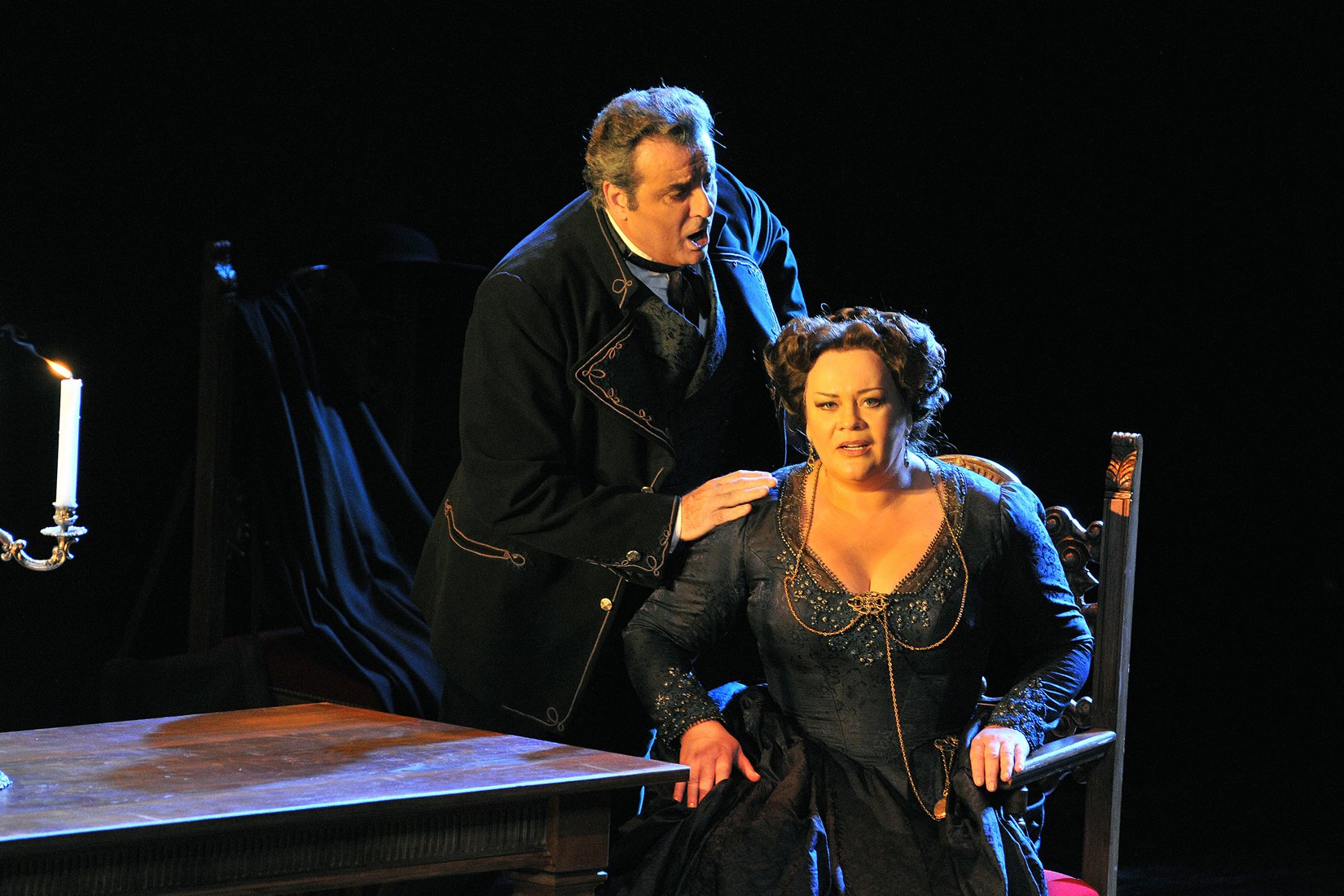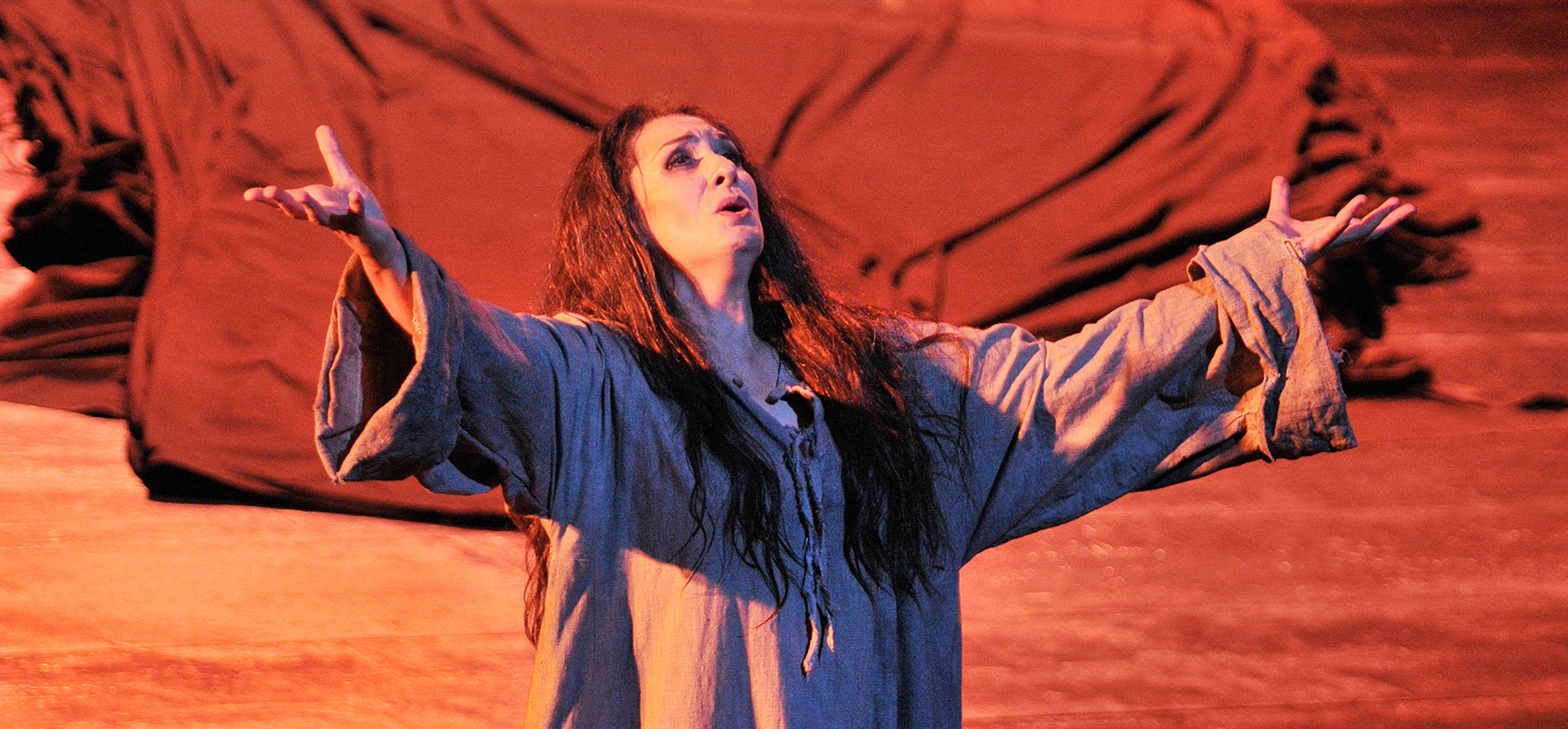
In 1860, the Russian court commissioned Verdi to write a new opera. After several months of delays, he finally settled on the subject of Don Álvaro, a tragic hero of Spanish Romanticism condemned never to find peace or love. Verdi composed one of his most complete operas—a blend of drama and comedy, with lyrical passages of great beauty and grand effect, in which theater and music function on the same level. He improved the opera in its definitive version, revised for its Milan premiere in 1869.
Between the premieres of Un ballo in maschera (early 1859) and La forza del destino (late 1862), almost four years passed. In Verdi’s career, this was a welcome change: up until that point, he had composed 22 operas with barely a moment of rest.
Verdi referred to this period of his career as the "galley years" (meaning years of forced labor), during which he had to write and premiere an opera almost every season. But by this time, his success had begun to provide him with considerable income, allowing him to finally take things more slowly.
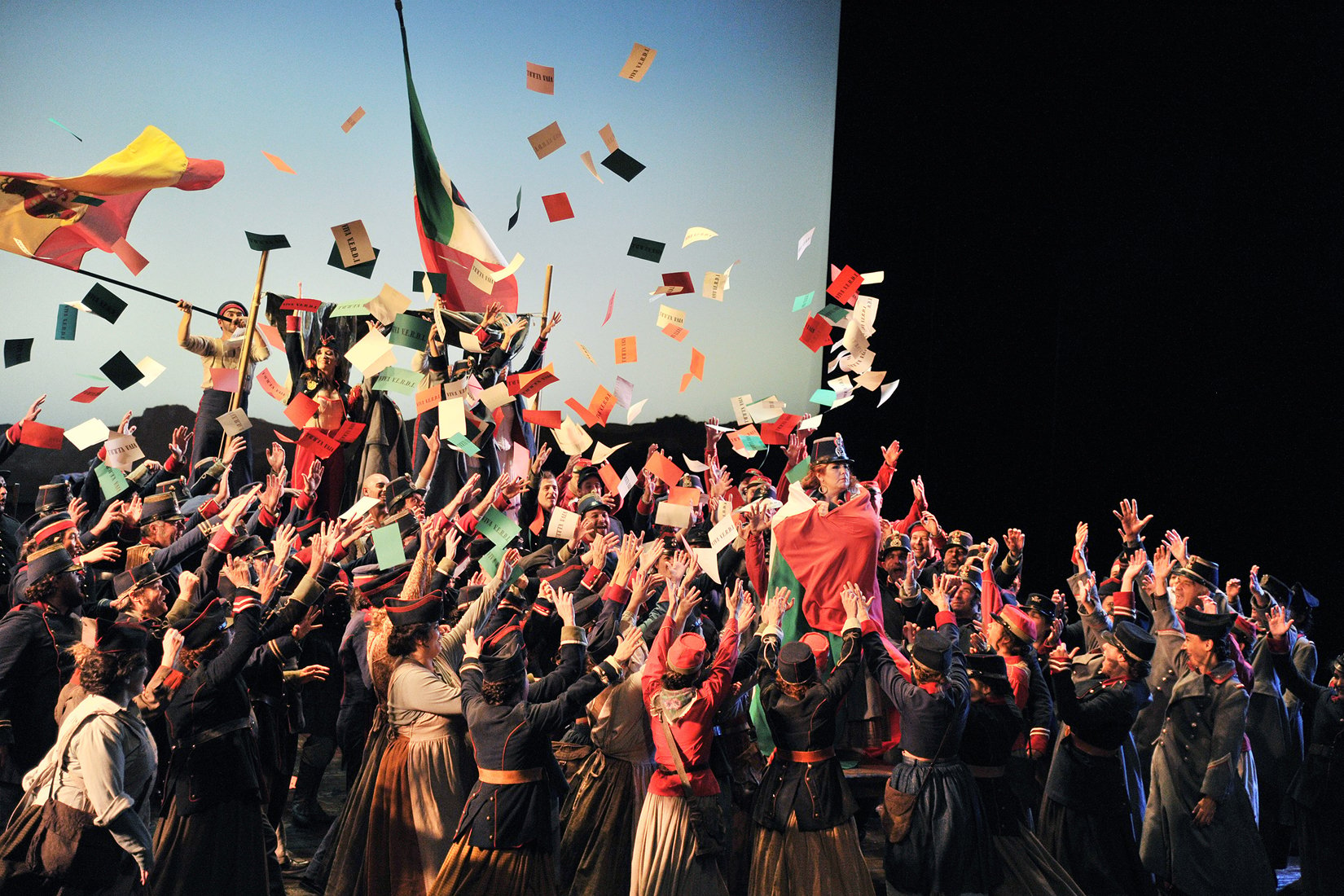
Thus, when an offer came from the Russian court in early 1860 to create a new opera for the Mariinsky Theatre in St. Petersburg, Verdi accepted, now having full control of the situation. In fact, La forza del destino, as we know it today, was more the result of circumstance than anything else: Verdi had originally wanted to write an opera based on Ruy Blas, a subject that did not sit well with the tsar's court. The protagonist of Victor Hugo’s play, a man of humble origins who becomes the lover of an empress, offered a sharp critique of the class-based society still prevalent in Russia at the time. Faced with the court's initial resistance, Verdi decided to abandon the project, preferring not to proceed if he couldn’t work comfortably.
«Premiered in 1862 and revised in 1869, La forza del destino has since become one of Verdi’s most acclaimed operas for its great emotional intensity»
Several personal circumstances also distanced Verdi from music for a time: for a few months, he served as a deputy in the first parliament of the newly unified Italy, and he also got married. However, he returned to music and decided to resume the Russian project, though he changed the story. He ultimately chose Don Álvaro, o la fuerza del sino, the principal drama of Spanish Romanticism, written by the Duke of Rivas in 1835.
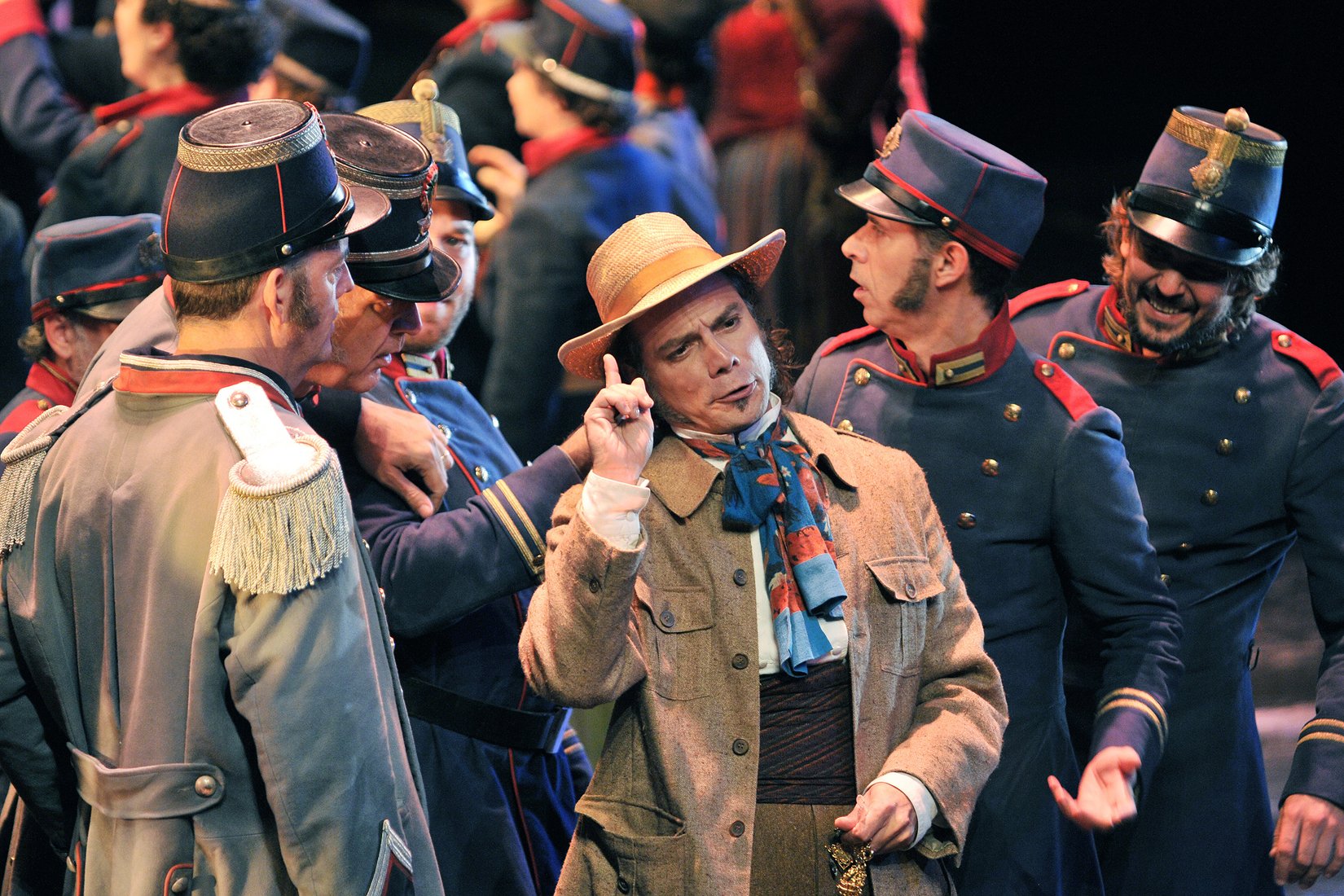
Verdi was enthralled by the story because it was a compendium of heightened passions—thirst for revenge, constant yet impossible love, betrayed friendship, and lives controlled by uncontrollable forces—that reminded him of Il trovatore. Finally, after commissioning the libretto from Francesco Maria Piave, he began working and, in a short time, completed the music for a drama as irrational as it was irresistible. The initial reaction from the public was positive: the duets and group scenes, which added a humorous and popular touch to what was, in essence, an outdated story, were particularly well-received.
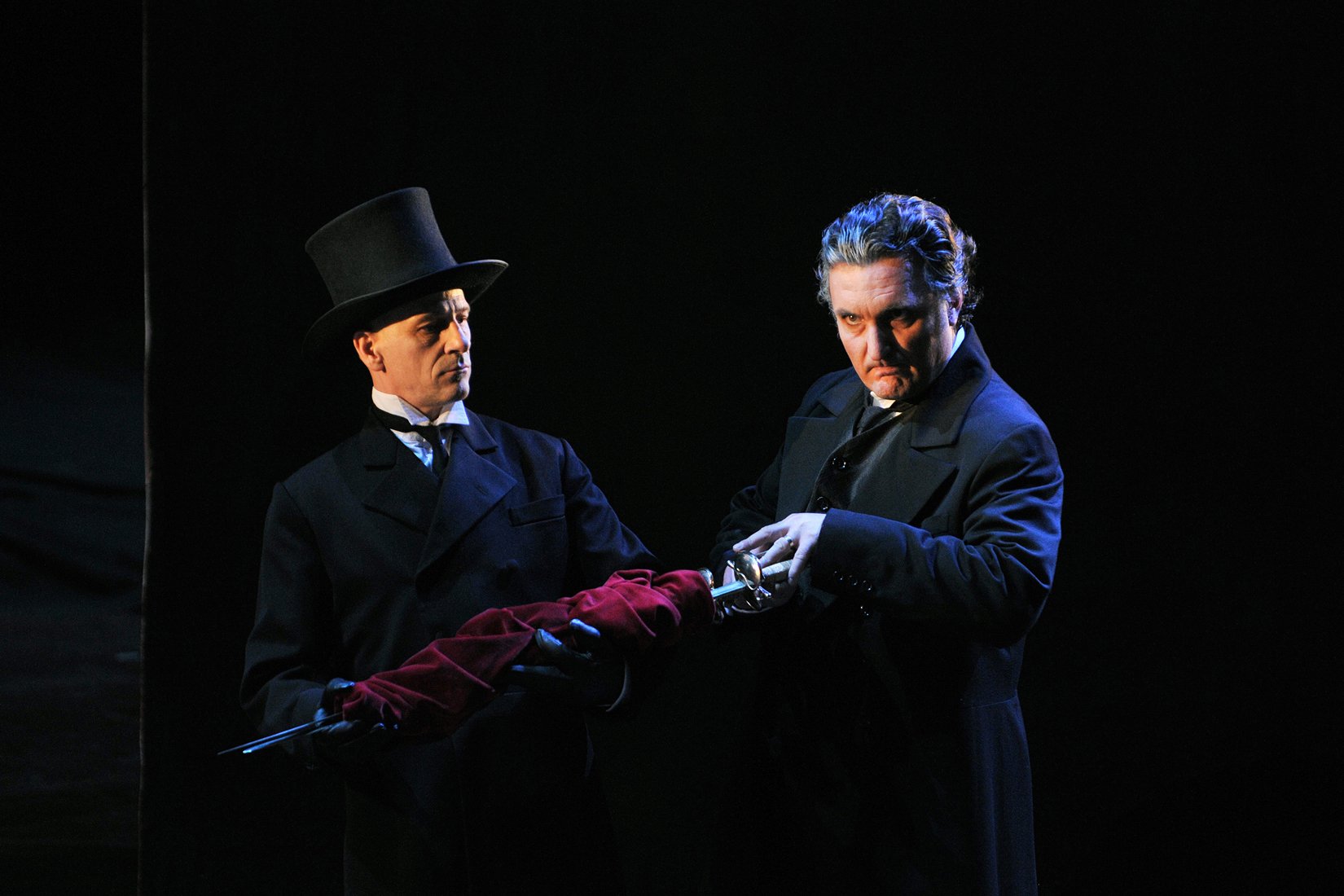
La forza del destino tells the story of Don Álvaro, a wealthy colonial, who plans to elope with Leonora, the only daughter of the Marquis of Calatrava, a noble from Seville. As they are about to flee, her father discovers them and orders Don Álvaro's arrest. Don Álvaro surrenders, but the pistol in his hand accidentally fires, killing the Marquis. From that moment, the two lovers are separated: Don Álvaro goes off to war, seeking death as his only escape from pain, and Leonora enters a convent.
Meanwhile, Don Carlo, the Marquis' son and Leonora's brother, searches for both of them to fulfill his father's dying wish: revenge. After years of searching, he finally finds Don Álvaro in Italy and chases him back to Seville. In their final duel, Don Álvaro kills Don Carlo, but Don Carlo still manages to fatally stab his sister as she rushes to help him.
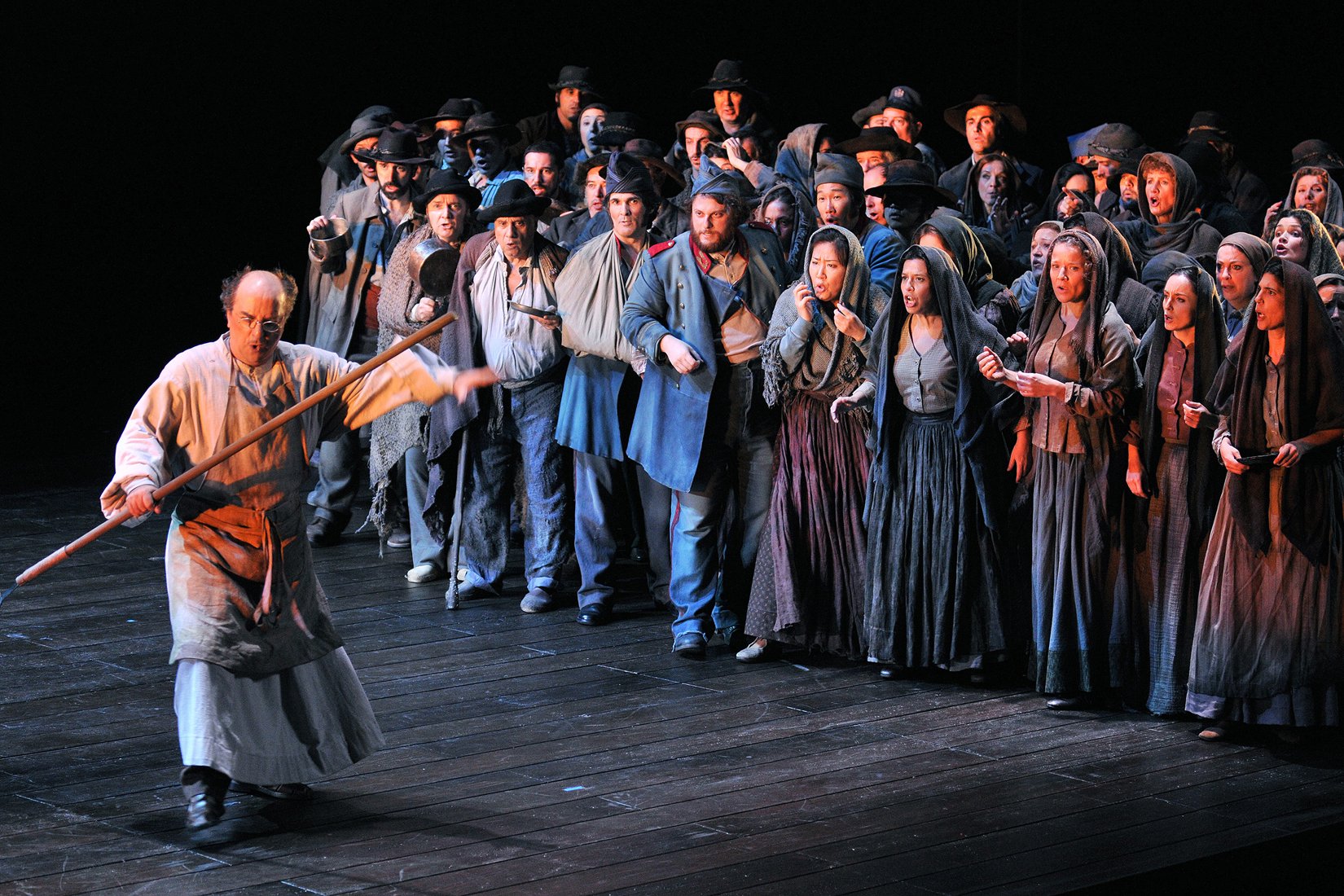
In the first version of the opera, as in the Duke of Rivas' play, Don Álvaro also dies at the end. However, in the 1869 revision, Verdi introduced two important changes: he composed a magnificent overture and saved the protagonist’s life at the end. Although forgiven by God, Don Álvaro is condemned to live with another fate—one of solitude and guilt. These two changes greatly improved the work, making it one of Verdi’s most beloved and mature dramas.
